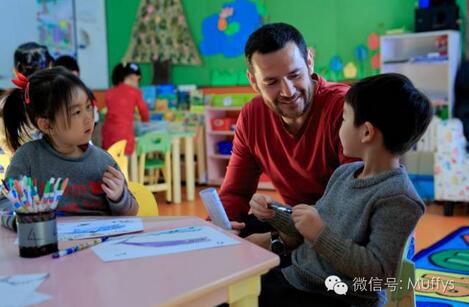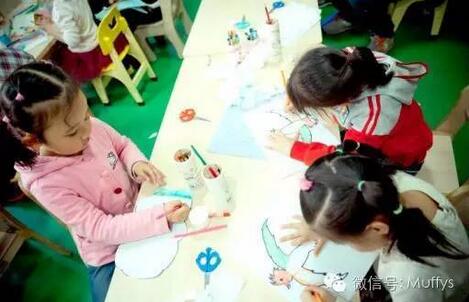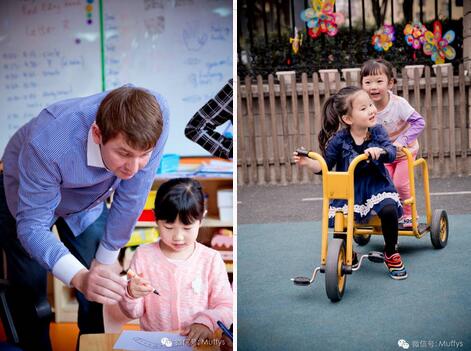Muffy’s is a wholly English immersion kindergarten. We are committedto providing our children with a caring and wholly English immersion learningenvironment. With the emergence of more and more international and bilingualgardens, parents will inevitably confuse the teaching mode of English immersionkindergartens and other kinds of gardens. Therefore, we especially interview Dora,the principal of Muffy’s Wanliu Branch, about English teaching in whollyEnglish immersion kindergarten.

The topic of this issue is “language learning is a very naturalprocess”, and the last issue of our series about wholly English immersionkindergarten will be launched later.
Q: How to get through the language obstacle for new students inwholly English immersion kindergarten?
A: Some parents might worry that the child is too young tounderstand English when he/she couldn’t even fully understand Chinese. In fact,children learn language in a way quite different from adults. Adults areinclined to communicate in English in a set mode: hear English—translate it inthe brain—pause—speak out English. However, for children before 6 years old,language learning is a relatively straightforward process.


Take line up, wash your hands,drink some water and some simple common language for example. The teacherprobably says them decades of times with body language and verbal languageevery day. The teaching assistant might help translate them in the firstseveral times, but a few days later, the child will naturally master them. 0-6years old is a critical period for child’s language development, and in thisstage, the child could get twice the result with half the effortin language learning.

For new elder children, they come from different kindergartens, andhave experienced two to three years of kindergarten life, so their mothertongue expression has been more mature. In the process of converting into a whollyEnglish atmosphere, they will need a transition period, in which they cannotcommunicate in English and meanwhile Chinese is restricted in class. Duringthis period, the teaching assistant will act as a translator and teach thechild some simple English expressions. Gradually, the child will be asked toexpress in English. When encountering problems, the child will ask the teachingassistant how do you say....The assistantwill tell him, and then he will use the complete sentence to talk to foreignteachers.

It should be stressed that, because our foreign teachers will teachmusic, mathematics, logic, sports and other knowledge in English, so the child cannot only learn a language but get a comprehensive intelligent development.
All in all, it takes time for a child to learn a language, butparents should remember not to be too hasty. Actually, some of our foreignteachers can speak Chinese very well, but they will certainly not let childrenfind it out. Because once the children know that the teacher can speak Chinese,then they will try to communicate with the teacher in Chinese and destroy the whollyEnglish immersion.
